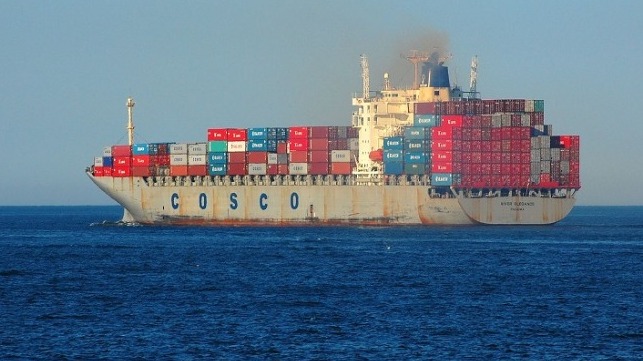China Follows Singapore on Scrubber Wash Water

China's Maritime Safety Administration has announced a ban on scrubber wash water release, effective January 1, 2019.
The Administration stated on December 29 that it would ban wash water in some ports in emission control areas effective in the Yangtze River Delta. The geographic scope of the ban may be extended in the future.
The ban follows a similar one announced in November last year by Singapore's Maritime and Port Authority of Singapore (MPA). The MPA will not allow ships with open-loop scrubbers to discharge scrubber wash water in port after January 1, 2020.
In order to remain in compliance, ships will have to switch to closed-loop scrubber operation if set up to do so or burn 0.5 percent sulfur fuel. Singapore will offer a full range of services for shore reception of closed-loop scrubber residues, and the MPA will release guidance on its preparation for the IMO 2020 sulfur cap by the second quarter of 2019. This will provide information on compliant fuel availability in Singapore, reception facilities for scrubber residues and enforcement measures.
Singapore's ban occurs within the context of a broader conversation about the potential effects of scrubber washwater on the marine environment. Wet scrubbers allow vessels to continue to burn low cost, high-sulfur fuels, even where otherwise prohibited, by removing sulfur oxides from the exhaust stream. Open-loop scrubbers use seawater as the washing agent, then discharge it again after use, along with some of the substances that would ordinarily exit the vessel's stack as air pollutants.
In a recent review, consultant Jad Mouawad advised that more research will likely be needed to answer questions about scrubber washwater's environmental impact. "A quick analysis of the concerns raised with washwater from scrubbers indicate that more independent research and a more thorough analysis of the environmental risks those systems pose is needed. This applies regardless of whether the system is open, closed or hybrid," he concluded. "My strong recommendation is that the IMO member states put forward suggestions to that regard, rather than start applying restrictions on scrubbers."
